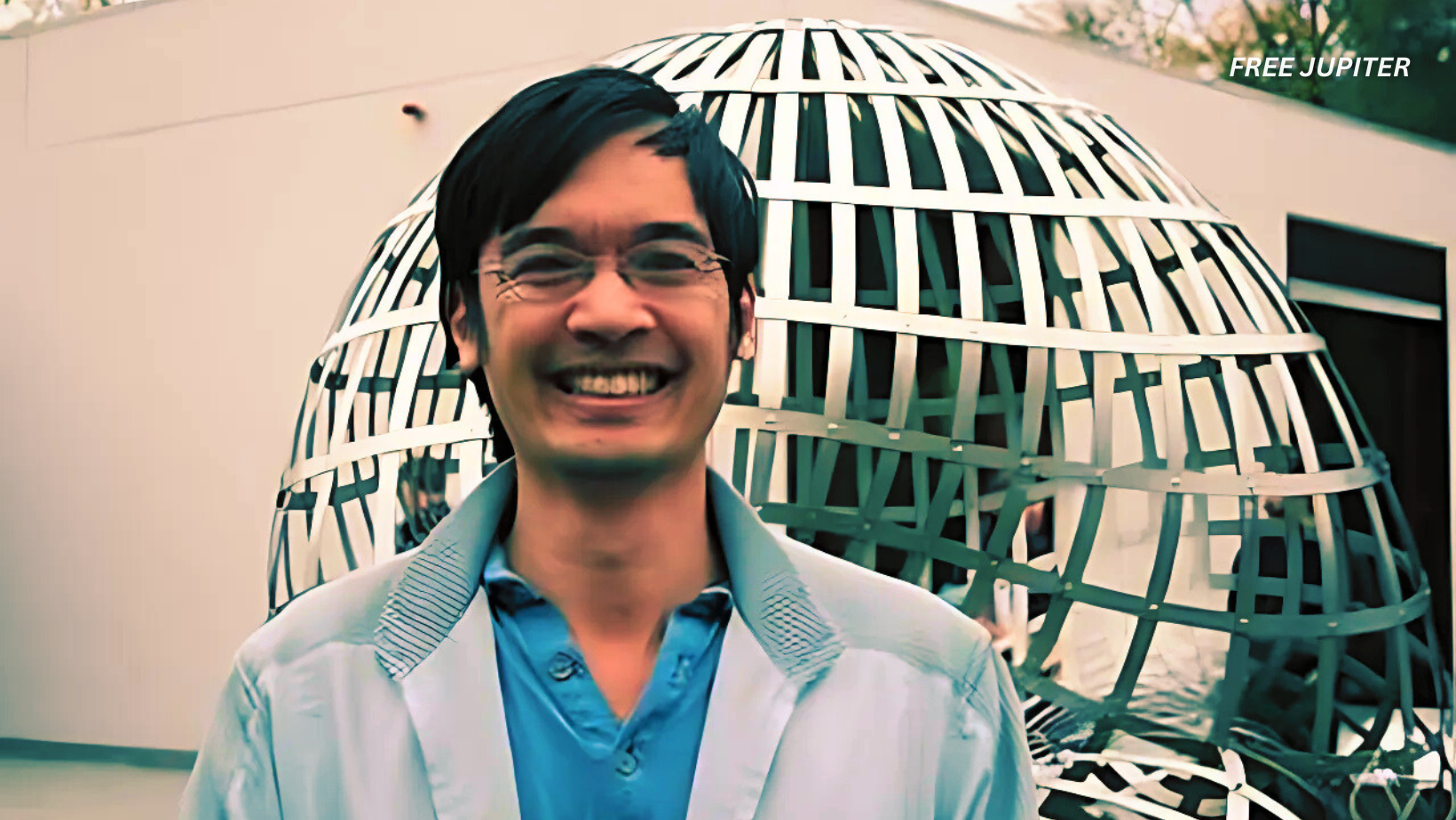Friendly Note: FreeJupiter.com shares general info for curious minds 🌟 Please fact-check all claims—and always check health matters with a professional 💙
What does it truly mean to be the smartest individual alive? Is it merely a numeric score on a standardized test, or is there a richer story behind such recognition? Terence Tao, often hailed as the “Mozart of Mathematics,” possesses an IQ of 230, a figure that places him in an extraordinary realm of intellectual capacity. Yet, Tao’s distinction goes beyond this impressive statistic. His ability to inspire, connect, and explore the vast potential of human cognition paints a fuller picture of what it means to be a genius.
Tao’s journey is not just about solving complex mathematical riddles or accumulating accolades. It’s a narrative of curiosity, humility, and the relentless pursuit of knowledge, demonstrating that intelligence involves asking insightful questions, embracing challenges, and appreciating the elegance of discovery.
Understanding Genius: More Than Just a Number
The word “genius” often evokes images of prodigies solving intricate problems or inventing revolutionary technologies. Traditionally, IQ tests have served as the benchmark for measuring intellectual prowess. With an IQ score of 230, Terence Tao stands at the pinnacle of human cognitive ability. However, this number alone cannot fully capture the essence of his genius.
IQ, or Intelligence Quotient, evaluates skills such as logical reasoning, memory, and problem-solving. An average IQ is set at 100, while scores above 130 place individuals in the top 2% of the population. Tao’s score is exceptional, but intelligence encompasses more than just test results. Psychologists like Howard Gardner have emphasized the multifaceted nature of intelligence, which includes musical talent, interpersonal skills, and self-awareness. Emotional intelligence, or EQ, further enriches this understanding by focusing on how individuals perceive and manage emotions.
Tao’s life exemplifies this broader concept of intelligence. His mathematical work demands creativity, intuition, and collaboration across various fields. This dynamic perspective highlights intelligence as an evolving force fueled by curiosity, resilience, and social connection.
Read more: Being Curious May Help To Keep Alzheimer’s Disease At Bay: Study
Childhood of a Prodigy: Early Signs of Brilliance
Terence Tao’s extraordinary intellect was evident from a very young age. By two years old, he had already taught himself to read. At eight, he scored an astonishing 760 on the math section of the SAT, and by ten, he became the youngest medalist ever at the International Mathematical Olympiad. These milestones were not merely proof of his intellect but a window into a lifelong passion for abstract thinking and exploration.
Born to immigrant parents from Hong Kong, Tao’s upbringing was carefully balanced. His father, a pediatrician, and his mother, a teacher, nurtured his talents while ensuring he had time for social and emotional growth. Unlike the stereotype of the isolated genius, Tao enjoyed a “super-normal” family life filled with creativity, games, and storytelling. This nurturing environment fostered not only his intellectual abilities but also the humility and inventiveness that characterize his work today.
Despite his early successes, Tao encountered challenges. At 12, he failed a quantum physics exam due to underestimating an essay question’s significance. Such setbacks taught him that intelligence is not about perfection but about resilience and learning from mistakes.
By 17, Tao had completed his master’s thesis and embarked on a Ph.D. at Princeton University. Even among brilliant peers, he sometimes felt daunted, yet these experiences deepened his commitment to understanding mathematics profoundly. His early years demonstrate that genius is as much about perseverance and support as it is about innate talent.
Terence Tao’s Impact on Mathematics
Often called the “Mozart of Math,” Tao’s contributions have transformed some of the most challenging areas in mathematics. From his pioneering work on prime numbers to innovative insights in fluid dynamics, his intellect operates on a level few can comprehend. What truly distinguishes Tao is his ability to engage others in his intellectual journey.
One of his most famous achievements is the Green-Tao theorem, developed with mathematician Ben Green. This theorem revealed that within the infinite set of integers, there exist sequences of prime numbers spaced evenly, regardless of length. This discovery was not just a technical feat; it bridged diverse mathematical fields, giving rise to additive combinatorics. The theorem opened new research pathways and inspired mathematicians worldwide.
Read more: 11-Year-Old Prodigy Challenges Stephen Hawking’s Views on God with Convincing New Theory
Tao’s interests extend beyond prime numbers. His work on the Navier-Stokes equations, a century-old mathematical puzzle describing fluid behavior, showcases his inventive approach. His thought experiments, such as envisioning self-replicating water currents, blend imaginative thinking with rigorous logic, illustrating his capacity to push boundaries while remaining grounded in mathematical principles.
Moreover, Tao’s collaborative nature sets him apart. Contrary to the image of the solitary genius, he thrives in teamwork, having partnered with over 30 mathematicians. He generously shares knowledge through co-authored papers, mentoring, and accessible blogging, making advanced mathematics approachable to both specialists and enthusiasts.
Comparing Terence Tao to Other Intellectual Luminaries
Terence Tao’s IQ of 230 is extraordinary, yet history has witnessed other remarkable minds whose intellectual gifts manifested uniquely. Comparing Tao with some of these figures provides a broader understanding of genius:
- Marilyn vos Savant: With an IQ of 228, she gained fame through her “Ask Marilyn” column, solving complex puzzles for the general public. Like Tao, she emphasizes making intelligence accessible.
- Christopher Hirata: Boasting an IQ of 225, Hirata excelled in physics, working with NASA and advancing astrophysics. His scientific contributions parallel Tao’s deep engagement with challenging problems.
- William James Sidis: Allegedly possessing an IQ between 250 and 300, Sidis was a child prodigy who later chose a reclusive life, contrasting Tao’s open and collaborative approach.
- Leonardo da Vinci: A polymath with a speculative high IQ, da Vinci’s achievements in art, science, and engineering reflect Tao’s interdisciplinary creativity.
- Albert Einstein: Estimated IQ around 160, Einstein revolutionized physics. Like Tao, his legacy lies in transforming how we perceive the universe and inspiring future generations.
These comparisons highlight not only the rarity of such high IQs but also the diverse ways genius influences the world—from theoretical physics and mathematics to art and public engagement. While IQ provides a numerical snapshot, the true measure of intelligence is the lasting impact on society.
Rethinking Intelligence: Beyond the Score
Terence Tao’s IQ of 230 is undeniably impressive. Yet, his true genius shines through his approach to life—marked by humility, curiosity, and an unwavering dedication to learning. Tao exemplifies that intelligence is not a static gift but a continual choice: to embrace challenges, collaborate, and find joy in discovery.
Reflecting on Tao’s story encourages us to see intelligence as more than numbers or accolades. It’s about how we apply our talents to enrich the world around us. Like Tao, each of us has the potential to redefine what it means to be a genius, one thoughtful step at a time.
Read more: The Most Intellectual Of The Zodiac Signs
Conclusion
Terence Tao’s remarkable IQ and contributions to mathematics place him among the most exceptional minds in history. However, his legacy is not confined to numbers or awards but extends to his collaborative spirit, creative problem-solving, and passion for sharing knowledge. His life story reminds us that genius is multifaceted, evolving, and deeply human—a blend of talent, perseverance, and the desire to make a meaningful difference.










